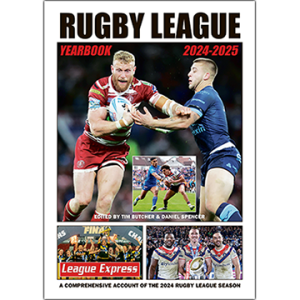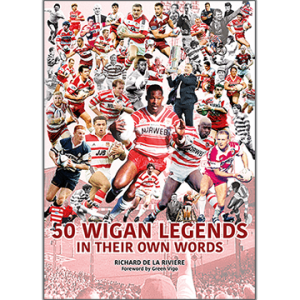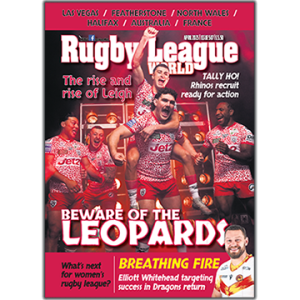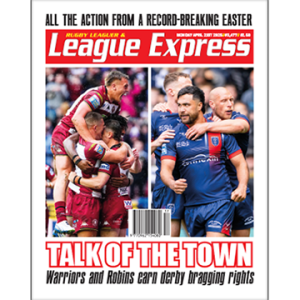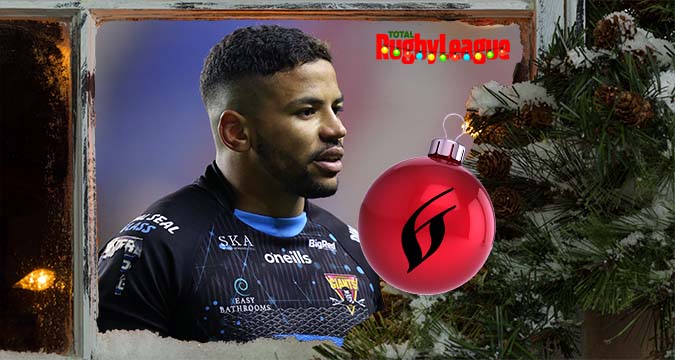
“That’s a question I’ve never been asked before.”
The first question to Kruise Leeming in this interview is about his family.
It’s a question asked out of personal curiosity, stemming back ten years to when I first met him.
I went to school with Kruise. He is younger than me, he was three school years behind me, but we spent a fair amount of time in similar circles. Rugby inevitably was one reason but the other was table tennis. We both played at lunchtimes and eventually, he ended up coming to my local club outside school hours. He was nowhere near as good as me, if you were wondering.
But every Friday evening when he arrived, he would do so with his two young sisters beside him, hand in hand. Before going to play he would crouch down to their height, kiss them farewell and tell them he loved them.
That always intrigued me. On the school playground, he was cocky and loud. Your typical rugby lad. But around his family, there was a caring, compassionate side.
But as he begins to explain his past, things quickly piece together.
“My dad passed away when I was eight.
“He was very close to me, the manly figure in the family. He was one of the heads. His dad, my grandad Keith, he’s top of the family, but then it was my dad.”
Kruise’s father was English, but his mother, Khabo, was from the tiny African nation of Swaziland, which borders Mozambique and South Africa. It is a country that is developing slowly but faces numerous challenges. It has one of the lowest life expectancy rates in the world, just 58.
“My dad worked on cruise ships, that’s how he met my mum, and that’s how I got my name.
“He went to Swaziland to get the blessing of my family where my mum’s side of the family all lived and that’s where I was born, We stayed over there for three years, but there is more opportunity over here. My dad was from England and my mum saw it as a really good opportunity.
“But when my dad did pass it was really difficult for my mum. All her family were in Swaziland and she was pregnant with my youngest sister, who never got to meet dad. She had to bring up three children on her own and not knowing anybody in a different country. Any single parent will know how tough that is. There was nobody to take my dad’s position and so the responsibility got passed down to me.”
His father’s sad passing brought new responsibilities and tough challenges.
“Your dad dying at such a young age is never ideal, but I got on with it.
“I remember playing up at school a couple of months after it happened and blaming it on my dad, but mum never let me get away with that, she wouldn’t have it. Back then I would try and play up, but she was that stubborn about it, she told me it had happened and I had to move on.
“I look back and I could have gone off the rails if she’d given me some leeway. It was a massive turning point in my life, I never had the chance to moan about anything. I’m so grateful to her for that.”
As Kruise continues speaking he makes a point of naming everyone in his family. There are his sisters, Sandzi and Marty, who are 18 and 15 respectively now.
“I like to think I’ve had quite an influence on their lives.”
But he’s keen to mention those that influenced him, too. There are his three uncles, Todd, Kirk and Nick.
“I was missing my dad, but I wasn’t starved of a father figure or a man in my life. They all really shared the role.
“Although all that had happened, I wouldn’t say I missed out or was starved of anything. I’d get to go on every school trip, I wouldn’t miss out on nice clothes. I lived as normal a life as was possible given what happened.”
Leeming was brought up in Siddal. That’s where his rugby league career began. Although in unusual circumstances.
“I was eleven years old and I was down Siddal, I’d go with my grandad and play golf on the rugby fields behind the clubhouse because there was plenty of space.
“Dilwin Lewis, who was at the club would be going mad, absolutely tearing his hair out because I’d be tearing the turf up with the shots. I remember him saying ‘I tell you what, you can practice as much as you want but you have to come down and train with us.’
“I didn’t fancy it at all, I never had done, so he said I couldn’t practice.
“Basically, I was forced into it and I went down the next Saturday so I could continue practising my golf, but then I absolutely loved it. It was different coming from an individual sport, my grandad had always played squash and tennis so I’d never been pushed into a team sport, but I loved being around a set of lads and I made lifetime friends. Most of my friends now come from Siddal.”
The sport introduced him to two new father figures in his life. The first, Gareth Greenwood, the Dewsbury Rams assistant coach who was at Siddal at the time, and Damian Ball, the former Halifax player who was the rugby coach at Brooksbank school.
“They were both fantastic to me.
“Bally stepped in when it was a shaky time for me. I had a few run-ins with Bally when I thought I was bigger than the club or school team. There’s been a lot of life lessons along the way. They shaped my career. I still go through them now as a young lad.”
Under Ball, Leeming won three national school titles in a Brooksbank team that featured fellow Super League players Chester Butler and Nick Rawsthorne. His performances saw him picked up by Warrington, where he went through the scholarship ranks, before joining Huddersfield.
The mention of Huddersfield prompts an inevitable change in topic. His departure from the Giants and move to Leeds Rhinos.
“I want to say first that I’ve not a bad word to say about Huddersfield.
“But the history of the two clubs tells its own story. It’s not to say Huddersfield won’t win any Grand Finals. But the chances are that I have a better chance of going to Leeds and doing it.
“That ultimately would be one of my proudest moments, going to a Challenge Cup or Grand Final and winning it. I’d then feel like I’d achieved something. Until then, the money is nice, but if I retired, never had to work again but had never won any of those trophies, there would be a hole in my career and a feeling of emptiness at the end of it all.
“If we go back to the move itself, if I felt there wasn’t any time for me to achieve those things, there would have been no reason for me to move, because Huddersfield itself is a good club. I would never advise anyone not to go there.
“But with the time I’ve got left, I felt I’d become stale and stagnant in my own performance. It’s nothing on anyone but myself and my performance. Everything I’ve achieved to now is how I’d imagined it. I’m where I need to be in terms of the number of games I’ve played, I’ve played for England Knights, everything is progressing nicely.
“But I was in that deadlock, I’d never been in a play-off game or a semi-final. Now I think is the time to play in those big games. My career needs that if I’m going to excel to the next level. I think I can do that with Leeds.
“When I spoke to Simon (Woolford) I said to him that I see myself playing in front of tens of thousands, winning a Grand Final and a Challenge Cup one day and I felt like my own performance had become stagnant.
“In everyday life or a job, if you were there six years and were told this is how far you’ll go and then you got offered a new job interview and there’s the potential to do this in the future, then you’d want to do that. I could see that with Leeds.
“I might be wrong. I genuinely wish Huddersfield the best and I hope they do well because it is a genuinely good club with good people.
“But I didn’t want to look back on my career and say I could have gone to Leeds Rhinos and then regretted it. If I set out to accomplish everything I want in my career, one thing would be that I don’t want to have any regrets.”
Now, he’s determined to prove his decision was correct. Aged 24 with 116 Super League appearances already under his belt as well as England Knights honours, he has laid down a healthy platform to build the rest of his career.
“It’s such a good club. Everything about it, it has everything.
“I want to finish my career and say I’ve done everything. The World Cup is a tough one, you’ve maybe only got two or three cracks at it and everything has to fall right. But if I won the three trophies and played for England, I’d think I’ve had a good career.
“I think that’s possible, definitely at a club like Leeds. It’s up to me now and I know that.”
But there is another motivation driving him forward too, his family.
“I’m glad you’ve brought family up because I think 99% of rugby league players do it to make their families proud and to give them a better life. That’s a huge motivation for me, to make them proud, both here and in Swaziland. I’ve seen a few articles from over there, maybe it’s called the Swazi Times!
“I want to go back soon. Because of the short off-seasons I don’t get the chance to go back long enough and see everyone, I’d hate to go and not be able to do that. But I want to take my girlfriend Alex there soon to show her my past.”
For now, however, expect to see him under the lights at Headingley.

